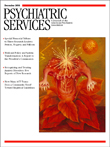Rose and Ruby Darlen are known in the medical community as the oldest surviving conjoined twins. At 29 years of age, Rose decides to write an autobiography to chronicle her life when it becomes threatened by a brain aneurysm. Rose and Ruby have never bathed alone, had a private conversation, or looked into each other's eyes. From birth and throughout their short lives, their experiences are ordinary, and yet at the same time, extraordinary, because their unique bodies are joined at the head. Once Rose begins her story, Ruby decides to include her memoirs in the book to ensure her experiences are told in her own distinctively different voice.
From the beginning, Rose portrays a simple life in rural Baldoon County in Canada. She and Ruby are abandoned at birth by a teenage mother and are taken in by Aunt Lovey, a hospital nurse who attends the birth, and her Slovak husband, Uncle Stash. Rose's, and later Ruby's, words explore in effective detail their feelings and emotions as they experience pain, fear, abandonment, rejection, anger, joy, love, isolation, empathy, and sexuality both together and separately. The collection of neighbors, families, and friends around them serve as a colorful influence in their development from their infancy to when they become young adults.
The book focuses on people who have disabilities and are certainly and definitely more alike than different from people without disabilities. Except for the inclusion of references that Rose and Ruby make to the challenges and complications their conjoined state introduces to their eclectic life, their story could be told by any 29-year-old sisters living in rural Canada.
Any mental health professional would benefit from reading this poignant story, but people who have had limited interaction with people whom we generically call clients, consumers, patients, cases, or residents may find a special lesson here.
Inevitably, our view of a person in need of our services begins with an introduction to their diagnosis and treatment plan. Rose and Ruby's story as told in The Girls takes us past the clinical description of their existence to the personal side of their life as they wrestle with the angst and passion of their everyday life. This novel drives home the need for us to recognize that all of us are people in our own right first, and then people with therapeutic needs.
Ruby Darlen says it best in the closing words of The Girls when she writes, "I have never looked into my sister's eyes, but I have seen inside her soul."

